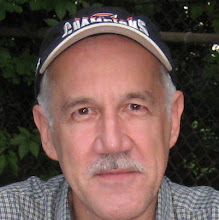Two recent news items spur this post:
First, an article in Saudi's Arab News -- our main daily newspaper -- headlined Saudi Downstream Forum in Jubail. It includes an aerial photo of the petrochemical industry here. As far as I can tell, the photo shows an area very close to our school; but the photo seems to have been taken several years ago, without the new superhighway.
The headline is at first curious, as there are no rivers in Saudi Arabia, and no dramatic ocean currents either. Here in Jubail, the term Downstream is a standard metaphor for the big factories here that receive petroleum pipeline rivers and process it into now-essential products of modern life: petrochemicals, polyethylene, polystyrene, and myriad items named in advanced chemistry classes. Our proximity to the factories was reportedly the main reason our recent school-expansion plans were rejected -- the Commission has now sited our new high school construction ten miles further north, away from the factories and away from our current elementary school.
Second, news of yesterday's spike in oil prices caused by a rumor of a pipeline explosion near us (we saw and heard no evidence of such, but there was a duststorm yesterday). That is a sign of the high level of global nervousness, as the rumor originated from Iranian television -- they have a very obvious interest in finding problems in Saudi Arabia and in hiking the price of oil. The local government immediately denied the rumor, which calmed the market. We live just 20 miles north of that pipeline, and I drove by there yesterday, saw no sign of problems. However, there were reports from Reuters that protestors in that area were shot by police. It leads me to assume that fires could have been started by protestors, that could be exaggerated as explosions.
We see little sign of protest or opposition in the major towns here, but understand that the backwater community of Qatif -- the oldest town in the region -- has been left behind in the economic boom, its residents further marginalized by their adherence to Shi'ite theology.
First, an article in Saudi's Arab News -- our main daily newspaper -- headlined Saudi Downstream Forum in Jubail. It includes an aerial photo of the petrochemical industry here. As far as I can tell, the photo shows an area very close to our school; but the photo seems to have been taken several years ago, without the new superhighway.
The headline is at first curious, as there are no rivers in Saudi Arabia, and no dramatic ocean currents either. Here in Jubail, the term Downstream is a standard metaphor for the big factories here that receive petroleum pipeline rivers and process it into now-essential products of modern life: petrochemicals, polyethylene, polystyrene, and myriad items named in advanced chemistry classes. Our proximity to the factories was reportedly the main reason our recent school-expansion plans were rejected -- the Commission has now sited our new high school construction ten miles further north, away from the factories and away from our current elementary school.
Second, news of yesterday's spike in oil prices caused by a rumor of a pipeline explosion near us (we saw and heard no evidence of such, but there was a duststorm yesterday). That is a sign of the high level of global nervousness, as the rumor originated from Iranian television -- they have a very obvious interest in finding problems in Saudi Arabia and in hiking the price of oil. The local government immediately denied the rumor, which calmed the market. We live just 20 miles north of that pipeline, and I drove by there yesterday, saw no sign of problems. However, there were reports from Reuters that protestors in that area were shot by police. It leads me to assume that fires could have been started by protestors, that could be exaggerated as explosions.
We see little sign of protest or opposition in the major towns here, but understand that the backwater community of Qatif -- the oldest town in the region -- has been left behind in the economic boom, its residents further marginalized by their adherence to Shi'ite theology.

Comments
Post a Comment